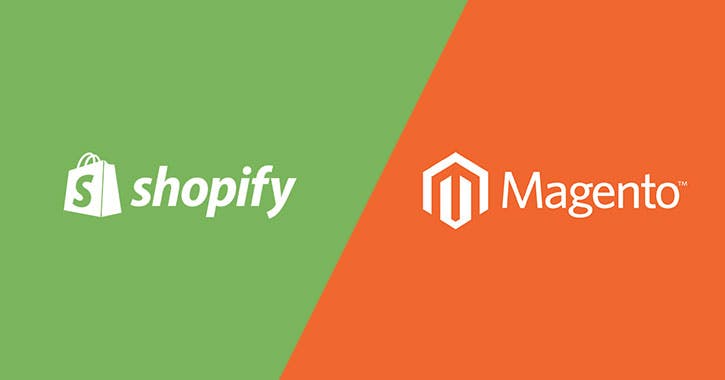When it comes to e-commerce there are a lot of options to choose from, but, especially for larger stores, the trending CMS’s are Shopify and Magento.
When you total everything up head to head, both are pretty evenly matched, but they both excel in different ways. Look at it like this: Magento is a war-hardened warrior, armored up in a solid suit of steel and boasting an impressive array of weaponry. He is reliable and proven in battle, but rather slow moving. Shopify is the young upstart, quick and nimble on her feet, dodging serious blows by ducking and diving, but perhaps lacking the experience and breadth of abilities to win a war outright.
Now you could let the two continue to battle it out to the death, but a wise monarch might decide that there’s a better way. Maybe it would be more constructive to judge both options depending on what you actually need for your online store. As the resident expert at ThoughtLab, I can suggest three essential questions to ask in order to make the right choice for a new online store.
1. Would you prefer a hosted or self-hosted option? (Shopify is hosted, while Magento self hosted)
2. How much time do you have to spend getting your online store up and running? (Shopify is much faster)
3. How much are you willing to pay and what do you expect from your first year’s results? (Magento is more expensive but highly customizable)

It is worth noting that in our experience Shopify is more comparable to Magento Go rather than Magento Community or Enterprise Edition (which are both more advanced). Shopify is a great platform to begin selling online, without much help from a developer or an Ecommerce web design company like ThoughtLab, but we can still help Shopify sites a great deal (SEO,content, design, API’s, customizations, etc). On the downside websites running on Shopify look slightly generic (without costly CSS customization) and don’t allow for much advanced customization when they do allow any. If you want to see for yourself, go on Shopify’s portfolio and see that even their better websites—the ones Shopify showcases and prides itself on are generally non-comprehensive.
With Magento the sky really is the limit. You can run any promotion, set up any type of coupon, customize a website to match and represent your brand any way you want it, set up complex shipping, or any other functionality you may think of.
Summing it up, if budget is a concern, you’re just getting started, and don’t have a relationship with a design/development company like ThoughtLab, then for e-commerce SquareSpace or Shopify are probably your best bet. If you want to get started with something more advanced or require advanced customizations, and are willing to invest some money (as one would invest to open an appealing physical store to sell products) then go with Magento or build the entire store from Scratch (it will end up a better long-term investment overall) and customize it to do exactly what you need/want it to do.


